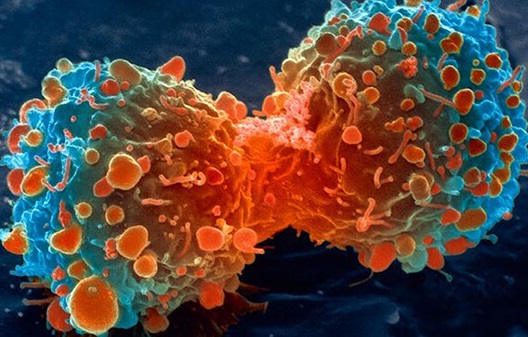Cancer cells may develop far more easily than originally thought – just one to 10 mutations is all that’s needed to bring about a full-blown case of cancer, says a new study.
The study also found that cell mutations that lead to cancer generally are accepted among cells in the human body, despite the fact that mutations a person inherits from his or her parents are often lost over time as those mutated cells die off.

The new findings, published in the journal Cell, assessed more than 7,500 tumors across nearly 30 distinct types of cancer. The research team, led by scientists at Wellcome Trust Sanger Institute in England, has provided answers to questions about cancer and its impact on cell mutations that have vexed scientists for decades.
“We have addressed a long-standing question in cancer research that has been debated since the 1950s: how many mutations are needed for a normal cell to turn into a cancer cell? The answer is – a small handful,” said lead author Dr. Peter Campbell with the Wellcome Trust Sanger Institute.
“For example, about four mutations per patient on average drive liver cancers, whereas colorectal cancers typically require 10 or so driver mutations,” added Campbell.
The landmark study may give the medical community fresh insight on the genomics of cancer and could pave the way to further improvements in personalized medicine.
Related: How Antibiotics Can Augment Cancer Therapy
“In the study, we revealed that around half of these key mutations driving cancer occur in genes that are not yet identified as cancer genes,” said first author Dr. Inigo Martincorena.
“There is already much insight into the most important genes involved in cancer; but there are many more genes yet to be discovered. We will need to bring together even larger numbers of cancers studied by DNA sequencing, into the tens of thousands, to find these elusive genes,” added Martincorena.
One of the key takeaways from the research is that the more scientists understand mutations – especially to specific genes – the better they can adapt treatment, both proactive and retroactive, to patients. Perhaps the next step, say the researchers, will be to gain a closer understanding of the specific genes tied to particular types of cancer and how prevalent mutations can lead to disease.
Related: Chemotherapy May Make Cancer More Likely to Spread
“We now know of hundreds of genes, that when mutated, drive cancer. This research shows that across cancer types a relatively consistent small number of such mutated genes is required to convert a single normal cell into a cancer cell, but that the specific genes chosen differ according to cancer type,” said professor Mike Stratton, director of the Wellcome Trust Sanger Institute.
While answering a long-troubling question about cancer genomics, the researchers may have just scratched the surface of an incredibly complex topic, and future therapies may depend on where the research goes from here.
“The study also shows that we have not yet identified many of these driver genes and they will be the target for further searching in the future. This increasingly precise understanding of the underlying changes that result in cancer provides the foundation for the discovery and use of targeted therapies that treat the disease,” said Stratton.
Richard Scott is a health care reporter focusing on health policy and public health. Richard keeps tabs on national health trends from his Philadelphia location and is an active member of the Association of Health Care Journalists.


![How To: ‘Fix’ Crepey Skin [Watch]](https://cdn.vitalupdates.com/wp-content/uploads/2017/05/bhmdad.png)












